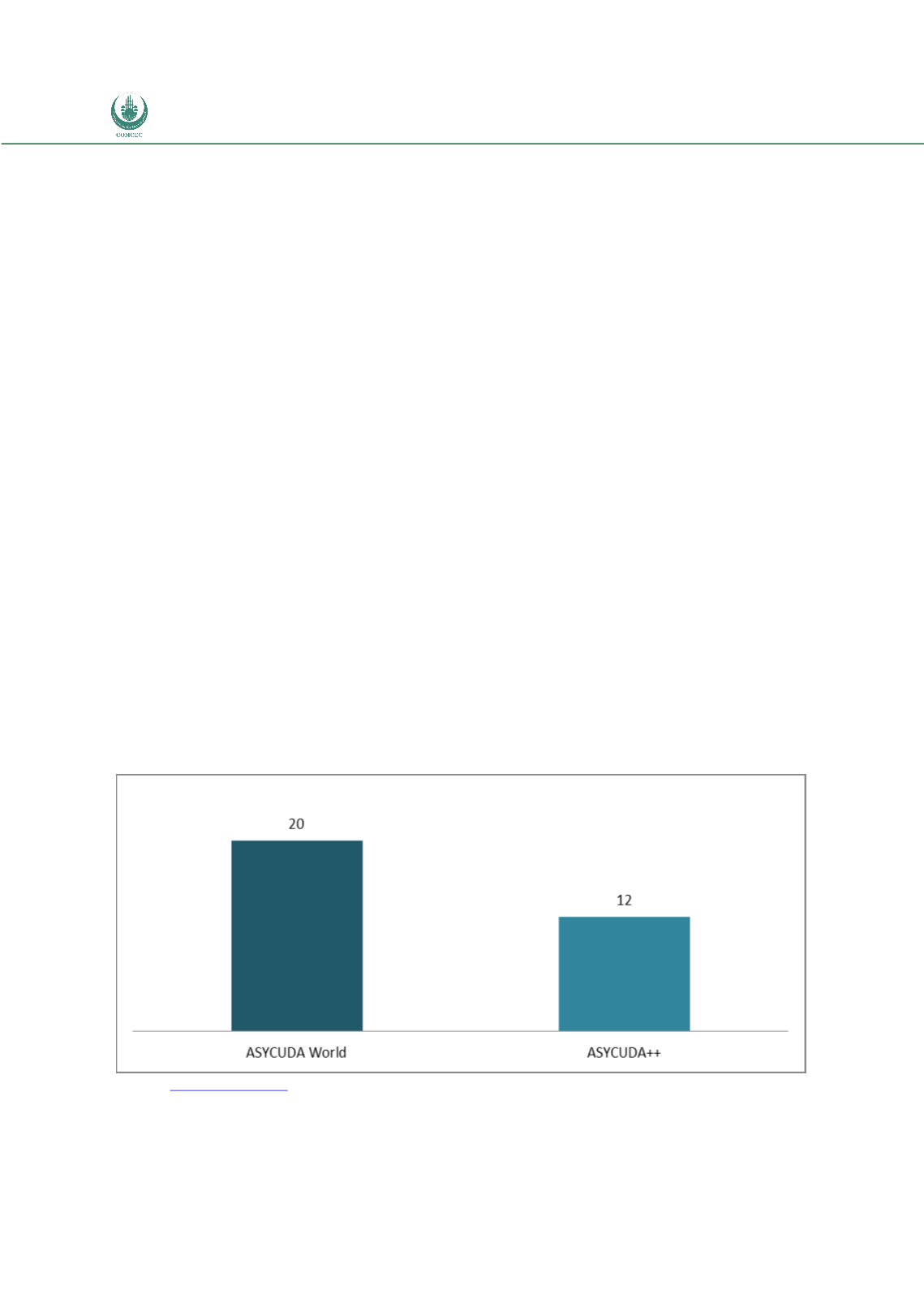

FACILITATING INTRA-OIC TRADE:
Improving the Efficiency of the Customs Procedures in the OIC Member States
70
covers the whole declaration-processing path, including cargo and transit. It uses
sophisticated tools, from the classic selection of the examination procedure and the
allocation of the declared goods to a control ‘channel’ —green, for the release of goods
without examination; yellow, for documentary checks prior to goods release; red, for
physical examination of the goods prior to release; or blue, indicating that goods will be
released but will be subjected to a post-clearance audit control by Customs— to the use
of multimedia, scanned images and wireless devices.” (UNCTAD 2008)
3.1.6. Use of ICT and Automation
Most of the OIC Member States are using the ICT and automation in customs
procedures. Some of them are using these systems effectively in their services such as
for accepting and processing declarations, publication of information, inspections etc.
On the other hand, some of the Member States are using the ICT in limited areas.
International institutions and donor countries are assisting the use of ICT in customs
procedures. For example ASYCUDA is developed with a view to increase the
efficiency of the Customs in the LDCs and Developing Countries. Currently, the system
is installed in around 90 developing countries or LDCs.
In order to improve the efficiency of the customs procedures, ASYCUDA is installed in
some of the Member States. The system allows for the electronic processing of
declarations, risk management, transit operations and expedited clearance of goods, in
addition to collecting timely and accurate statistical data for fiscal and trade policy
objectives (UNCTAD 2008). ASYCUDA is installed or in the process of being installed
in 32 Member States (See figure 7).
Figure 7: Number of Member States Using ASYCUDA System
Source
: www.asycuda.org
















